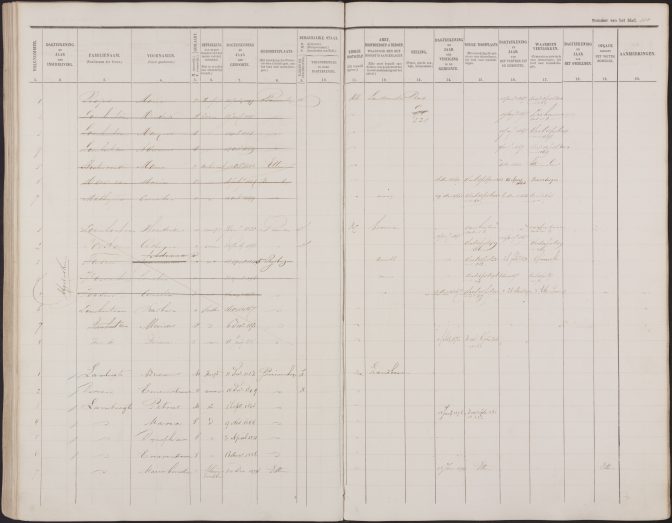When using population registers, pay attention to the different dates. A page in a population register shows who lived in a house during a period, usually ten years or so. Just because the people are listed in the same household, does not mean they actually lived in that house at the same time.
Population registers have columns for birth, marriage, death, arrival, and departure. It can help to plot all these dates on a time line to see who was living in the house when.
For example, you may find ten farm hands living on your ancestors’ farm. That may lead you to think that it was a prosperous farm. But when you look at their arrival and departure dates, you may notice that they all served for a year and never two at the same time.

Princenhage, Noord-Brabant, Netherlands, population register 1860-1879, 4:280; “Genealogie,” database and images, Stadsarchief Breda (http://stadsarchief.breda.nl : accessed 13 February 2016).

